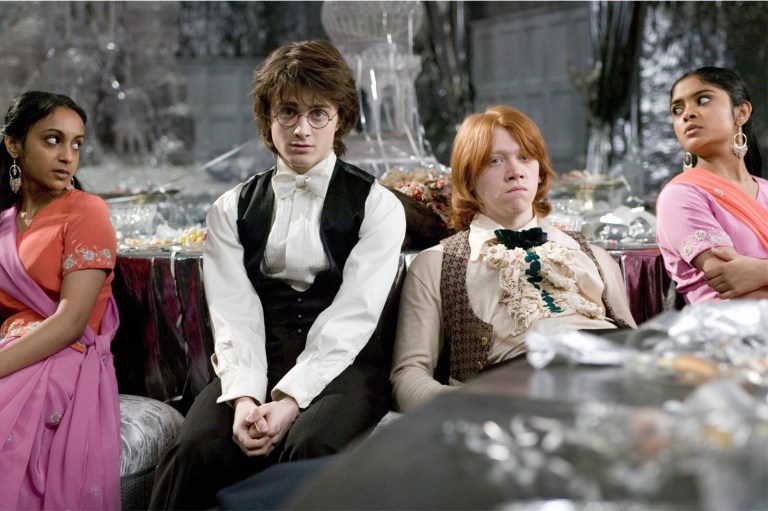
The Urge To Rip Up Love And Start Again
The problem of being me, I'm slowly starting to believe, is not a curse to be carried tiredly through life, or to be mollified by reckless pleasure-seeking (I've tried that). Instead it's a challenge. A worthy challenge.
By Violet Young
There are certain people among us who find it easier to be alone. I’m one of them. The stakes are low, the challenges few. We only have ourselves to judge us, which, it turns out, is more than enough. Therein lies one of the reasons we love making Houdini maneuvers out of others’ lives, out of commitment, out of intimacy: we are constantly hearing our voice in our head, criticizing, belittling. The desire to be alone, perversely, is also a desire to give this voice more airtime, more credence. To eliminate its competition.
But there’s another reason for wanting to be alone: to refresh our view of ourselves. To ultimately find someone new in which to see ourselves reflected. Initially, we always look better, greater, more perfect in this new person’s eyes, and it seems that all our problems have been solved. All we needed was love, real love, we claim. And here it is. Or is it? Soon, my certainty erodes. Doubt takes over. Mostly, I become sick of myself — of the way I’m being seen by the other person. Or rather, of the way I think I’m being seen, which is ultimately more of a reflection of how I see myself than how they see me.
How can we so confidently diagnose ourselves, yet not be able to change our habits, break the cycle and stop dashing out on everyone? I’m so clear on what my issue is: my concept of myself is too mercurial, too negative, too subjective. I stay on the move because I can’t stand being scrutinized — or so I view it — by others. I think: there must be some perfect person out there who will erase my self-doubt for good. I can’t seem to accept that that person is me.
Relationships, they say, are about working through the bad and being thankful for the good. If there’s more good than bad, stay. If only our relationships with ourselves were like that. Instead, in my case at least, it’s a torrid love affair with the bad in me and occasional, half-hearted acknowledgment of the good. This is not curable by another, nor, I don’t think, is it even curable by accomplishment. Even accomplishments seem tinged with disappointment and judgment: You could have done better, I like to tell myself. Our achievements are an attempt to quash self-loathing and our fear of being known, being seen by others as human and flawed. But the achievements themselves can’t do that. Only the path to the achievements can.
The closest I’ve come so far to peaceful immobility, to self-acceptance and sanity, is to realize that a life must be filled with as many positive features as possible, and that each of those should get more or less equal weight to the others. Depend too much on any one person or source of joy, and you will unfailingly ask too much of them, or it. You will also begin to feel that they are asking too much of you, because so much — too much — of your life is reflected in that one person or thing.
I recently watched my father rip up his life and start over. Now that he’s gotten what he apparently wanted, his loneliness appears starker than any other aspect of him. I watch him as he reaches in all directions to replace the feeling that he cast aside. That feeling was love, old love. Tired love, yes — love perforated by years of movement, confusion and change (in other words, years of life). I think he realizes now — too late — that the harder thing, working to keep a flame ignited, is worth more than the undoubtedly futile quest to replace that flame with one that you’re convinced will be warmer and brighter. But perhaps there’s hope for him yet: perhaps his loneliness, his reaching in all directions, will give way to a more full life, a more variegated life, with many more positives hanging equally in the balance.
It’s only by watching his example that I’ve been able to recognize the same behavior in myself. Recently my mother shared her side of the story in attempt to relate to an issue I was having in my own relationship. As I listened to her perspective, I heard myself admonishing my father in my head. But a few hours later, I suddenly recognized the hypocrisy of what I was saying. I was being just like him. I realized that sometimes it’s valuable to view oneself as the “bad guy” in a relationship, not the “good guy,” or as the victim of the other person. Of course my mother had kindly been siding with me, but perhaps she was indulging me, too, as I was indulging myself. When I turned the tables on myself, I realized that I had much to be guilty of. Being alone had seemed unavoidably appealing to me, and in some ways it still does; old habits die hard. But I realized that solitude is appealing in the way that a vacation is appealing. Come back, and the same problems will still be waiting for you. I knew in my gut that being alone wouldn’t solve anything. It wouldn’t solve the problem of being me.
The problem of being me, I’m slowly starting to believe, is not a curse to be carried tiredly through life, or to be mollified by reckless pleasure-seeking (I’ve tried that). Instead it’s a worthy challenge, a challenge that bears fruit, so long as we accept it. Start by thinking less, I tell myself. Do more. Love more, and it will come back to you. So far in life I’ve done the opposite. Like some mysterious sea creature, I’ve loved from afar, then added more and more protective and hostile layers the closer I’ve gotten to the object of my affection. The longer the relationship, the more I’ve seemed to withhold. Why? Because, I think, shedding those layers would mean I would eventually come to know myself. What a terrifying thought. ![]()











